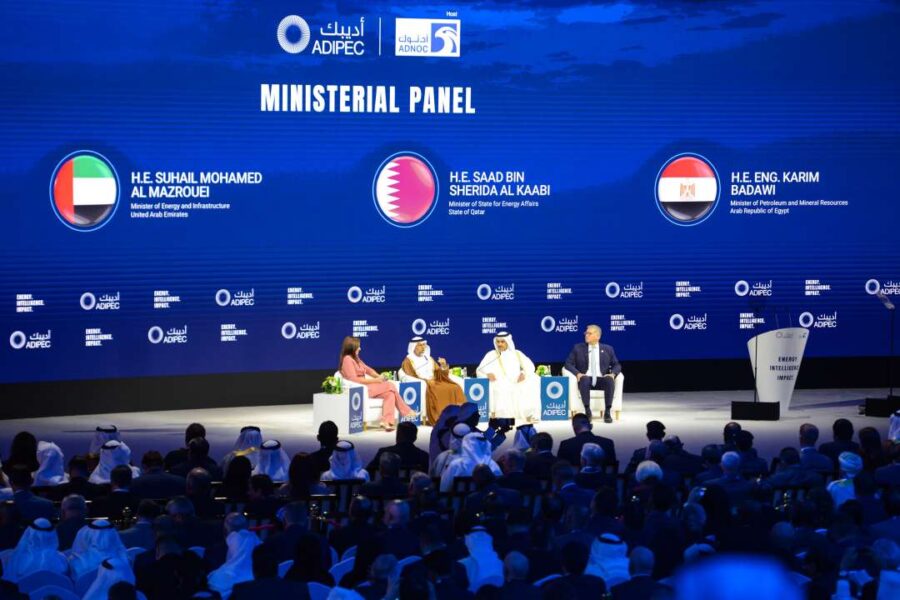Senior officials in the energy sector agreed Monday during the Abu Dhabi International Petroleum Exhibition and Conference “ADIPEC” that global oil demand has not yet peaked, and that global oil markets are on a positive and stable track.
Leaders attributed this optimism to multiple factors, most notably the balance of supply and demand, the continued growth in global consumption, and the pragmatic policies adopted by major producing countries.
OPEC Secretary-General Haitham Al Ghais said the group was still seeing positive signs for oil demand and did not expect any surprises in the market.
“We are making sure we maintain the supply demand balance,” Ghais added at a panel at ADIPEC, a day after OPEC+ agreed to an additional 137,000 barrels per day (bpd) oil production increase for December and a pause in increases in the first quarter of next year.
Energy security and clean energy
When asked about the possibility of an oil glut in 2026, United Arab Emirates’ Energy Minister Suhail al-Mazrouei said: “I am not going to talk about an oversupply scenario. In my view, what we’re seeing right now is growing demand.”
He said the Emirates is cementing its position as a “key player” by pursuing a balanced path while accelerating clean energy.
Al-Mazrouei said UAE is spending AED189 billion ($51.5 billion) on infrastructure and clean energy to reach net-zero by 2050.
It now has 12.4 gigawatts of clean power (over 30% of electricity), three giant single site solar plants, the Barakah Nuclear Power Plant running at full power and the world’s largest solar plus storage project for 24/7 clean electricity, the minister added.
Pragmatic policies
Delivering the keynote address at the opening ceremony of ADIPEC, Dr. Sultan bin Ahmed Al Jaber, Minister of Industry and Advanced Technology and Managing Director and Group CEO of the Abu Dhabi National Oil Company (ADNOC), said the UAE’s pragmatic approach proves how policy grounded in reality builds investor confidence and explained that the country is a model for credible, technology-driven, investment-friendly policy solutions.
“The lesson,” he added, “is that policies should be pragmatic, not performative, based on insight, not ideology, built on first principles, not fleeting popularity. Regulation without realism and legislation without logic, will only weaken economies, stunt societies and drive capital away.”
Noting that $4 trillion annual capital investment is needed in grids, data centers and all sources of energy, Al Jaber said “you can’t run tomorrow’s economy on yesterday’s grid” and went on to highlight the major demand-drivers through 2040.
“Here are the facts: electricity demand will keep surging through 2040, as power for data centers grows four-fold, 1.5 billion people move into cities, and more than 2 billion air conditioners come online. Aviation will also take off, with the global airline fleet doubling from 25,000 to 50,000 planes,” he showed.
Washington: No oil glut in 2026
The US Department of Energy’s deputy secretary, James Danly, said that he does not think there will be an oil glut in 2026.
“We have a demand signal for energy that is going up rapidly,” Danly said at the conference.
Meanwhile, TotalEnergies CEO Patrick Pouyanne said Chinese oil demand growth has slowed since 2020 as the country transitions to greener energy, though he said he was still optimistic long-term due to rising demand in India.
“You have demand growing again steadily, but one thing has changed in the last three or four years: it’s the Chinese engine for growth of oil demand, which was really strong between 2000 and 2020,” Pouyanne said. “That engine has slowed down.”




